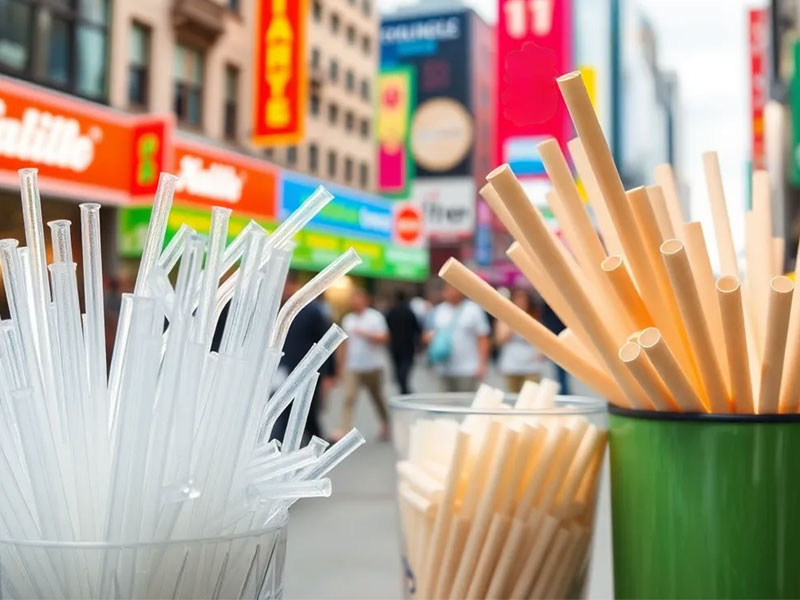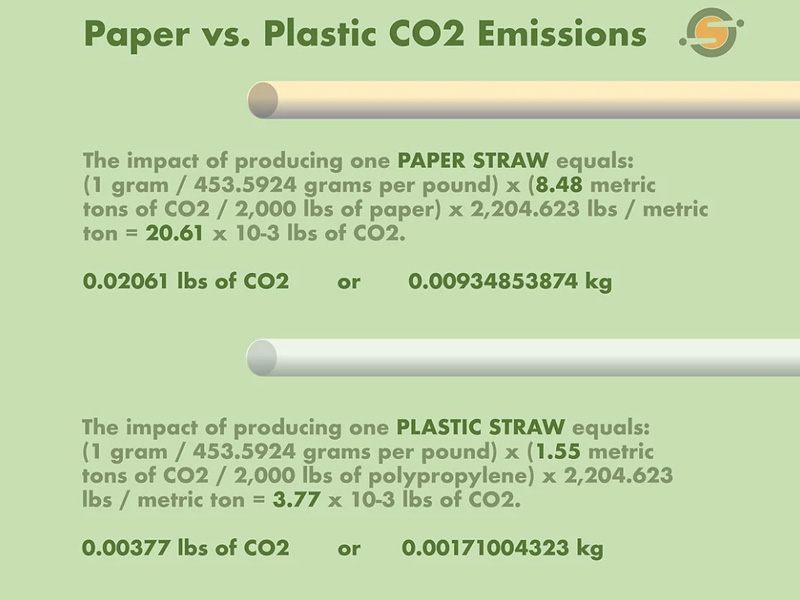We are going back to plastic: President Trump is getting rid of paper straws
We are going back to plastic: President Trump is getting rid of paper straws
On February 10, U.S. President Donald Trump signed an executive order halting the purchase of paper straws in federal agencies, reinstating the use of plastic straws. He argued that paper straws are "ineffective" and "break apart when wet," which sparked significant controversy.
Trump has long opposed the campaign to boycott plastic straws, and his 2020 campaign team even sold reusable plastic straws on their official website.
To understand this issue, we must consider the pros and cons of both plastic and paper straws. Plastic straws are made from petroleum, are inexpensive, durable, and recyclable. However, plastic takes hundreds of years to decompose, causing environmental pollution and health risks. On the other hand, paper straws are biodegradable within 6 to 24 weeks, but their production consumes more resources, and the greenhouse gas emissions can be 25% to 100% higher than that of plastic.

Globally, plastic straws account for just 0.02% of the 8 million tons of plastic waste dumped into the oceans each year (National Geographic, 2018). Simply replacing straws without improving the entire plastic production and consumption chain is like "a drop in the ocean"; the problem is not solved comprehensively.
Similarly, in Vietnam, 3.1 million tons of plastic waste are discarded annually, with 310,000 tons leaking into rivers and oceans. Just switching to paper straws will not be enough to tackle this larger issue.
To truly protect the environment, it is essential to focus on waste sorting and recycling. Some countries are already doing this very effectively. For example, in Finland, consumers pay a deposit when purchasing plastic bottles and receive money back when they return the bottles, fostering a recycling habit. Recycling one ton of plastic saves 5,774 kWh of energy and 16.3 barrels of oil (Plastic For Change).

Germany is also a country with an effective plastic recycling system, where citizens return bottles to stores in exchange for money. This system is simple, requires no promotion, and helps reduce plastic waste while creating a sustainable circular economy.
Vietnam needs to build a strong and sustainable plastic collection and recycling system, where people actively participate in the recycling process as a routine. If this is achieved, we can move closer to a true circular economy.
Trump has long opposed the campaign to boycott plastic straws, and his 2020 campaign team even sold reusable plastic straws on their official website.
To understand this issue, we must consider the pros and cons of both plastic and paper straws. Plastic straws are made from petroleum, are inexpensive, durable, and recyclable. However, plastic takes hundreds of years to decompose, causing environmental pollution and health risks. On the other hand, paper straws are biodegradable within 6 to 24 weeks, but their production consumes more resources, and the greenhouse gas emissions can be 25% to 100% higher than that of plastic.

Globally, plastic straws account for just 0.02% of the 8 million tons of plastic waste dumped into the oceans each year (National Geographic, 2018). Simply replacing straws without improving the entire plastic production and consumption chain is like "a drop in the ocean"; the problem is not solved comprehensively.
Similarly, in Vietnam, 3.1 million tons of plastic waste are discarded annually, with 310,000 tons leaking into rivers and oceans. Just switching to paper straws will not be enough to tackle this larger issue.
To truly protect the environment, it is essential to focus on waste sorting and recycling. Some countries are already doing this very effectively. For example, in Finland, consumers pay a deposit when purchasing plastic bottles and receive money back when they return the bottles, fostering a recycling habit. Recycling one ton of plastic saves 5,774 kWh of energy and 16.3 barrels of oil (Plastic For Change).

Germany is also a country with an effective plastic recycling system, where citizens return bottles to stores in exchange for money. This system is simple, requires no promotion, and helps reduce plastic waste while creating a sustainable circular economy.
Vietnam needs to build a strong and sustainable plastic collection and recycling system, where people actively participate in the recycling process as a routine. If this is achieved, we can move closer to a true circular economy.

